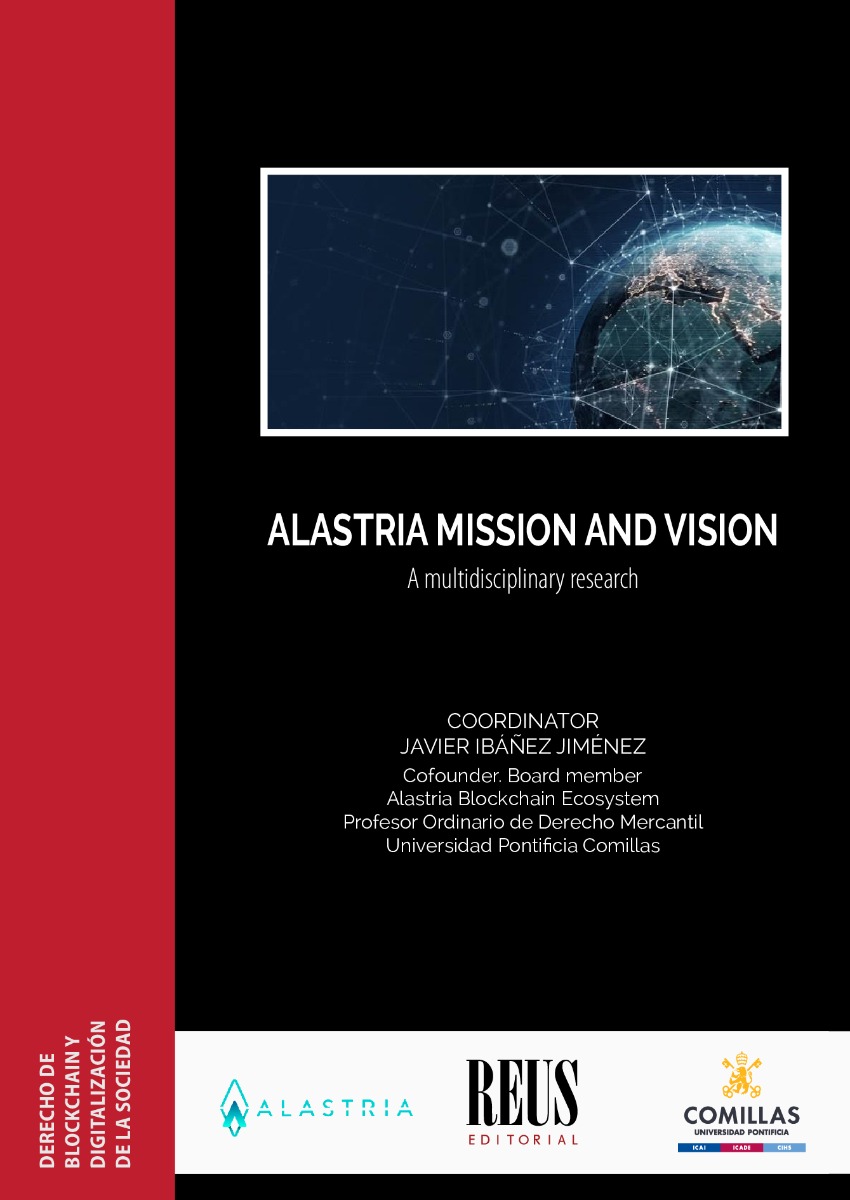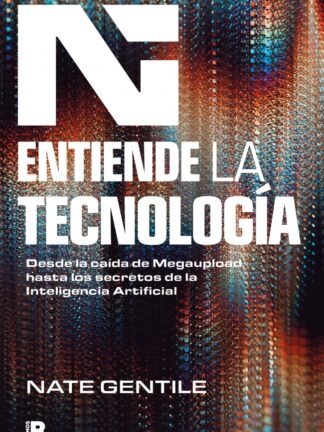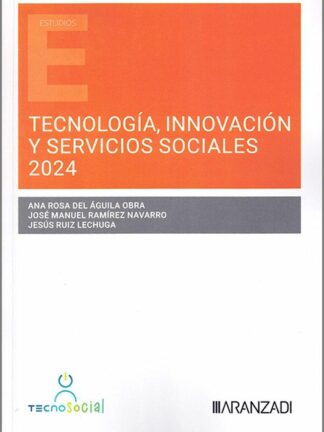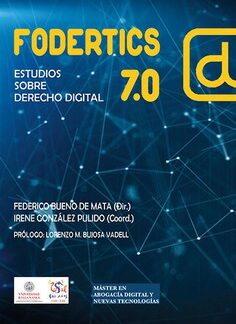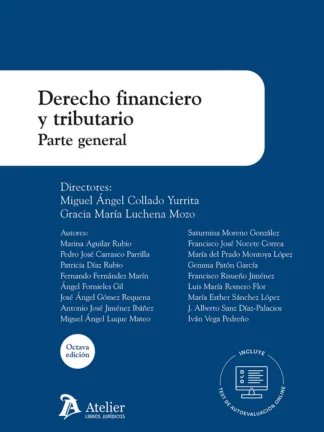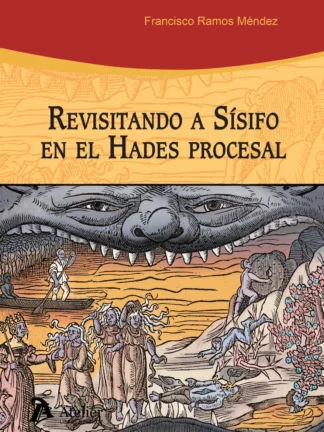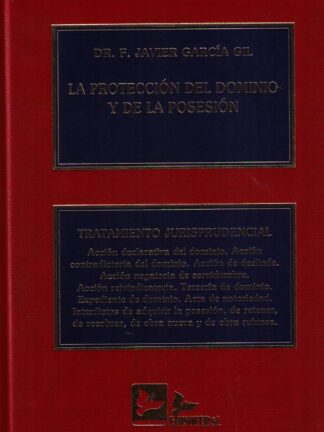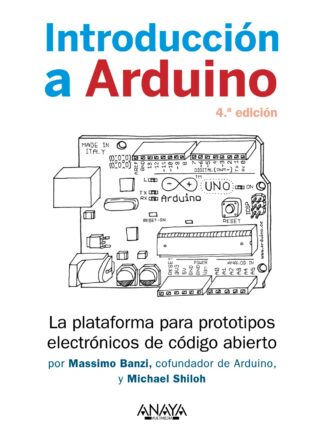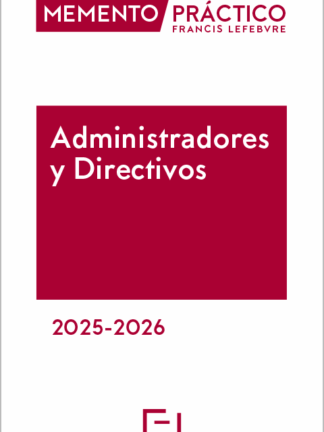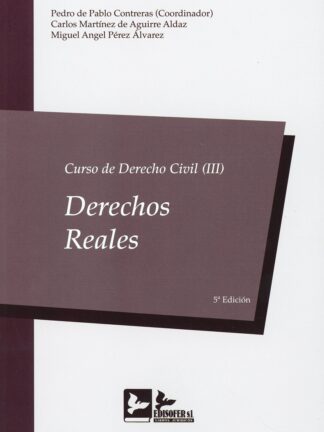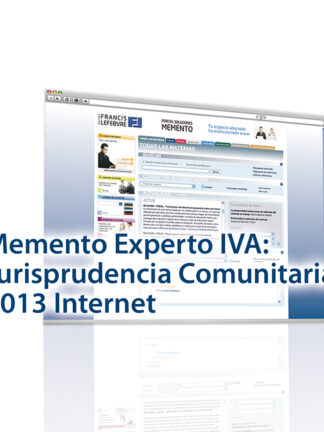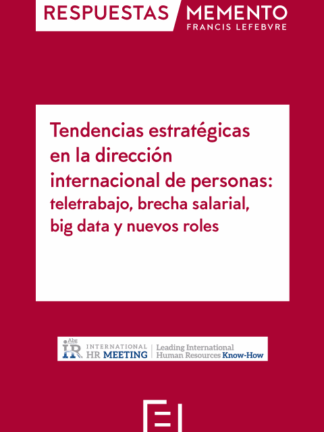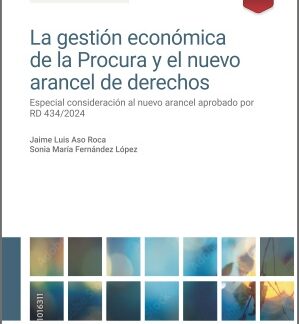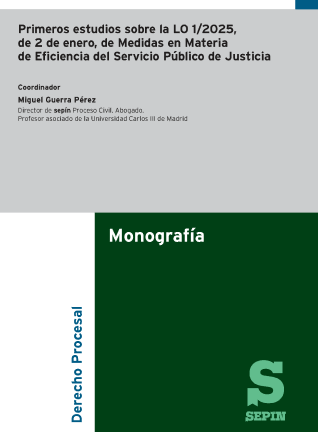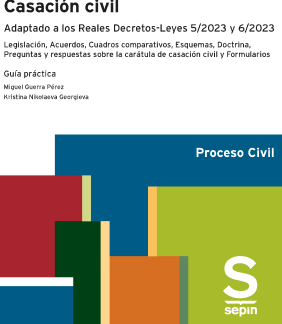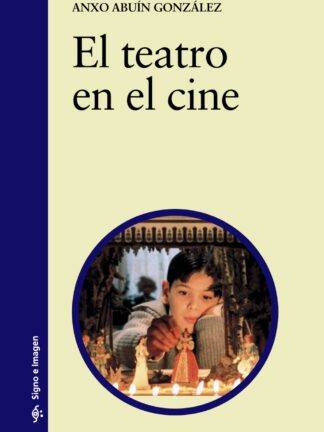Index
Foreword
PART ONE: Governance
Alternative dispute resolution mechanisms (as part of the Alastria governance) – Ismael Arribas
I. Introduction
II. Definitions and characterization of ADR solutions in the permissioned blockchain context
III. The fundamentals of arbitration as an optimal solution in the permissioned-blockchain governance context
IV. A proposal for Alastria
1. Specimen of inception
2. Components
3. Minimal common legal requirements
4. Challenges and recommendations for Alastria
5. Case of use: wine plantations
V. References
Alastria as a case of Internet governance – Moisés Barrio Andrés
I. Introduction
II. From technical governance to social governance
2.1. ICANN’s creation
2.2. The creation of the Internet Governance Forum (IGF)
2.3. ICANN’s globalisation
III. Concluding remarks: lessons from cyberlaw for Alastria’s governance
Validation and Governance in an Alastrian Testnet Node – David Contreras, José Luis Gahete, Israel Alonso, And David Alfaya
I. Introduction to Alastria architecture
1. Quorum consensus protocol
2. Transactions
II. Alastria members and nodes
1. Alastria Nodes Requirements
2. Alastria Nodes Configuration
III. Alastria Operation
1. Regular introspection
2. Network analysis
3. Results
IV. Conclusions and future works
Alastria governance policies and ethics – Javier Ibáñez Jiménez
I. Introduction
1. The relationship between agency problems, conflicts of interest and ethics from a general and legal societal perspective
II. Ethics beyond governance organization in DLT permissioned networks
III. The case of Alastria: conflicts of interest, implemented controls and alternative solutions in accordance with an ethical acceptable consensus
1. The bylaws of Consorcio Red Alastria, a private-law association
2. Conflicts of interest and related policies
3. Ethical code of the association
IV. Specific components of governance in the Alastria model: agency problems in Alastria as a DLT associative consortium and node community for the development of a permissioned blockchains
1. Authority of nodes and transaction validation in Alastria
2. Conflicts of interest in the Alastria on-chain governance
3. Off-chain governance and agency problems in the Alastria model, and their meta-juridical or extralegal ethical and social projection
Rewarding honest validators in Alastria – Pietro Marchionni
I. Introduction: consensus among nodes in DLT
1. Consensus algorithm in Alastria: fault tolerance and node voting
2. The need to define a rewarding system for validating activity in a permissioned network
3. Objectives
II. Alastria rewarding model
1. The optimal characteristics of a validator node as a prerequisite to set the optimal rewarding model
2. Alastria Rewarding Measure Algorithm
2.1. Key building elements
2.2. ARM formula
2.3. ARM calculation and simulation
2.4. Alastria Rewarding Measure strategy and marketing
The value of leadership in Alastria governance – Salvatore Moccia
I. Leadership as a matter of research
II. Analysis: the evolution of leadership standards and conception
III. Alastria governance seen from the entrepreneurial leadership viewpoint
IV. Conclusion
V. References
PART TWO: DIGITAL IDENTITY
The conceptual legal framework of Alastria identity – Ignacio Alamillo Domingo and Julián Valero Torrijos
I. Contents
II. The convenience of a conceptual legal framework for the Alastria self-sovereign identity initiative
1. The alignment of the Alastria identity with the regulatory framework for the usage of identification systems by the national public sector bodies
2. The influence of the interoperability framework for cross-border electronic identification in the European Union: the eIDAS Regulation
3. The convenience of offering support for compliance with the formal identification obligations contained in anti-money laundering regulations
III. Guidance for the Alastria trust framework and identity interoperability agreements
IV. References
Characterization and importance of cyber-identity in permissioned networks – Elena Davara Fernández de Marcos
I. Introduction to the concepts of cyber-identity and permissioned internet networks
1. Cyber-identity as a digital personal identity
2. Permissioned networks
II. Data security and vulnerabilities: the need of effectiveness in regulatory implementations, and the role of blockchain within this context
1. The role of the DLT
2. Introductory GDPR issues
2.1. Profiles
2.2. Biometric data
3. Self-sovereign identity in the DLT context
4. A word on the Alastria self-sovereign identity
The value of Alastria identity for public administrations – Pedro Martín Jurado
I. Blockchain and improvement of efficiency in Public Administrations
II. The digital identification of citizens and the functions of public administrations
1. Self-sovereign identity in the relations between public administrations and citizens
2. The European Self-Sovereign Identity Framework
3. Some issues on the accreditation of European citizens, and the initiatives of the European Commission
4. Reference to the Alastria network within the current public permissioned Blockchain identity context
PART THREE: SUPERSTRUCTURES
Smart contracts and decentralized applications in Alastria: the case of Spanish wine – M. Aymo, C. Bellón, and R. Sáenz-Díaz
I. Idea in brief
II. Introduction
III. The wine industry in Spain
IV. Use case: exporting Rioja wine. Situation today
1. The Alastria Wine Solution
2. Supply Chain Management Issues
3. Alpha version of the Alastria Wine Solution. Application to Rioja wine exports
V. Conclusions for all stakeholders
The use of smart contracts for public tenders in the Región of Aragón (Spain) – M. A. Bernal Blay
I. Blockchain for the public sector
II. A distributed ledger for offers in public procurement
1. Context and initial objective
2. Smart contracts for the evaluation of the offers
III. Some tips about the project: the public procurement of innovation
IV. Other use cases
Accounting and non-financial firm data tokens in Alastria – E. M. Ibáñez
I. A word on tokens as a historic source of accountancy registration and record of transactions
II. DLT Utility in accountancy
III. the digital audit of accounting information in public permissioned networks
1. Stakeholder integration and benefits in public permissioned blockchains by audit smart contracts: a preliminary consideration
2. A sample of registered auditable transaction in the Alastria permissioned blockchain
IV. Preliminary findings
V. References
Primary and secondary market tokens in Alastria: the case of olive oil tokens – Antonio Partal Ureña
I. Blockchain and Alastria market utilities
II. A word on market tokenization
III. A project for olive oil tokens on the Alastria T Network
1. Traceability functions
2.The olive oil token market
IV. Conclusion
PART FOUR: Proofs of concept
Alastria smart contracts for the Women Startup Community (WSC) – Teresa Alarcos Tamayo
I. The Women Startup Community (WSC) and the feminine talent in the digital era, and the transformation of entrepreneurship
II. The goal of increasing the transformational and social power of women’s businesses and the inspiration of woman leaders in the digital era
III. The Alastria-WSC connection and the fundamentals of the TT Trust Token
Security, order and freedom in the blockchain era: the case of Spain – Pablo Gallego Rodríguez
I. Foreword
II. Public order and security
III. Alastria multisectorial consortium and its contribution to guarantee effective protection of public constitutional order and public security
Rewarding recycling plastic proof of concept with tokenization and smart contracts in Alastria – Josep Lluis de la Rosa
I. Introduction: Issue at hand
II. Hypothesis and precedents
2.1. Discounts and presents aren’t working enough
2.2. Lotteries redistribute the individual rewards
2.3. Lotteries and rewards programmes need of transparency
III. Tokenization as a Type of Circular Economy
IV. Minimum Valuable Product (MVP) Design
4.1. The proof of work
4.2. Tokenising the tax discount
4.3. Tokenising the Special Lotteries
4.4. Smart contracts for lotteries
4.5. Illustrative use case
V. The platform approach and implementation
VI. Results
VII. Conclusions
VIII. Acknowledgements
IX. About us
X. References
Boosting coopetition through Alastria, data sharing and Artificial Intelligence – Julen Milan and Antonio D. Masegosa
I. Introduction
II. Artificial intelligence and the data collection problem
III. The key role of Alastria in data sharing as a distributed ledger
IV. Related work
V. Alastria for boosting coopetition through data-sharing and Artificial Intelligence
1. Coopetition and AI development challenges in blockchain recent environments
2. The Alastria model and its advantages for the implementation of AI methods
3. Existing AI models replicable in the Alastria network
VI. Conclusions and future work
VII. References
Blockchain, real estate asset tokenization and its protection by the land registry – Jesús Sieira and Jimena Campuzano
I. Tokenization of real estate assets under Spanish law
II. Taking real estate transactions to the blockchain
III. Land Registry: Legality control and erga omnes protection
IV. The Land Registry as the link between the “on-chain” and “off-chain” world: Land Registry protection and publicity of tokenization
V. Legal configuration of tokens representing rights in rem on real estate
VI. Effects of the entry of Tokenized Rights in rem to the Land Registry
VII. Conclusion
VIII. References
PART FIVE: CIVIL LIABILITY AND RELATED LEGAL ISSUES
The principles of Alastria under spanish civil law – Mirari Barrena
I. Legal entity: Association. The kind of legal institution chosen for Alastria constitution
II. The Alastria legal principles
1. Open access of members
2. Open-source software development
3. Public and permissioned characterization of the network
4. National body of associated members
5. Technological neutrality
6. Multi-sectorial membership
7. Interoperability
8. Collaboration and incentive systems
9. Decentralization and distributed power
9.1. General Assembly:
9.2. Board of Directors:
9.3. Commissions
10. Public-service orientation
Alastria multilateral contract: a civil law approach – Carlos de Cores
I. Introduction
II. Collaborative nature of the Alastria consortium and its incidence on its liability model
1. New paradigms of liability in the information society
2. Multilateral contracts and Alastria
3. Different models of liability according to different relationship
3.1 Relationships among Alastria’s members
3.2. Relationships with third parties
III. Liability related to the services rendered by the consortium and or its members
1. Concept of information society services
2. Taxonomy of information society service providers
3. Alastria as an information society service provider
4. Liability of society information service providers
5. Liability “by design”
IV. Conclusion
Robots, Smart contracts and civil liability in Alastria – M. Reyes Corripio Gil-Delgado
I. Robots and civil liability within a DLT or blockchain operative context: a preliminary approach
1. A civil personality for robots
2. A strict liability system
II. Alastria Blockchain and Smart Contract

